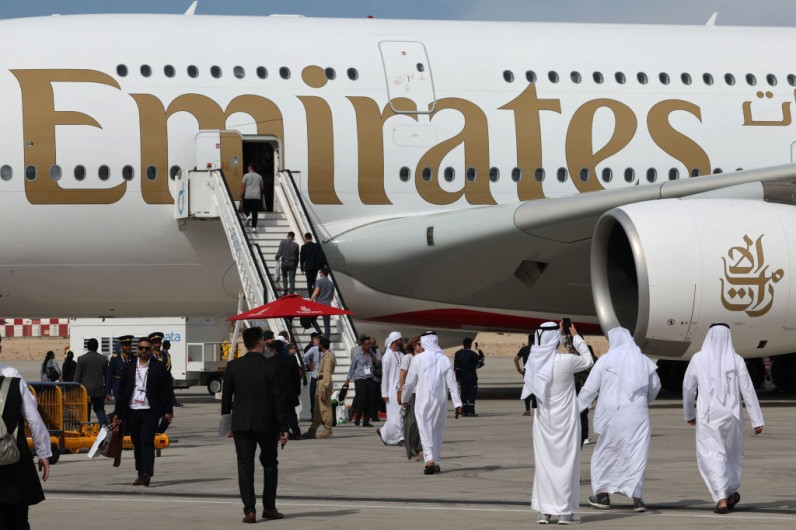
Dubai's ruler, Sheikh Mohammed bin Rashid al-Maktoum, gave the green light to a new passenger terminal project at Al Maktoum International Airport, valued at a staggering 128 billion AED ($34.85 billion), according to Reuters.
Dubai to Build the World's Largest Airport
The upcoming Al Maktoum International Airport will emerge as the world's largest airport, boasting a capacity of up to 260 million passengers, which is five times the size of Dubai International Airport.
Sheikh Mohammed emphasized that all airport operations in Dubai will gradually transition to Al Maktoum in the following years.
In addition to its massive passenger capacity, the new terminal at Al Maktoum Airport will encompass 400 terminal gates and be served by five runways.
According to the Dubai Media Office, Dubai Airports CEO Paul Griffiths said the decision "further solidifies Dubai's position as a leading aviation hub on the global stage."
The announcement featured computer-generated graphics of curved, white terminals resembling Arabian Peninsula Bedouin tents.
According to the statement, the airport would have five parallel runways and 400 aircraft gates. The airport now has only two runways, like Dubai International Airport.
New Hub
Emirates, Dubai's flagship carrier, and its subsidiary low-cost airline, Flydubai, alongside other airline partners, will make Al Maktoum Airport their new hub.
Dubai International Airport has been the world's busiest airport for the past ten years, straining its capacity.
Last year, about 87 million passengers passed through the transit hub, surpassing pre-pandemic levels.
Dubai has declared a record 17.15 million international overnight visits for 2023, up nearly 20% from the previous year. The average hotel occupancy rate was roughly 77%. Its boom-and-bust real estate sector is still thriving, with prices approaching all-time highs.
However, as passenger numbers increased, DXB's capacity was put under more strain, as residential districts and two major highways remained confined on both sides.
Financial constraints have previously slowed the movement. The Great Recession-related financial crisis that hit Dubai in 2009 compelled Abu Dhabi to provide a $20 billion bailout.
Meanwhile, the city-state is still recovering from the UAE's greatest rainstorm, which interrupted flights and business for several days.







Join the Conversation